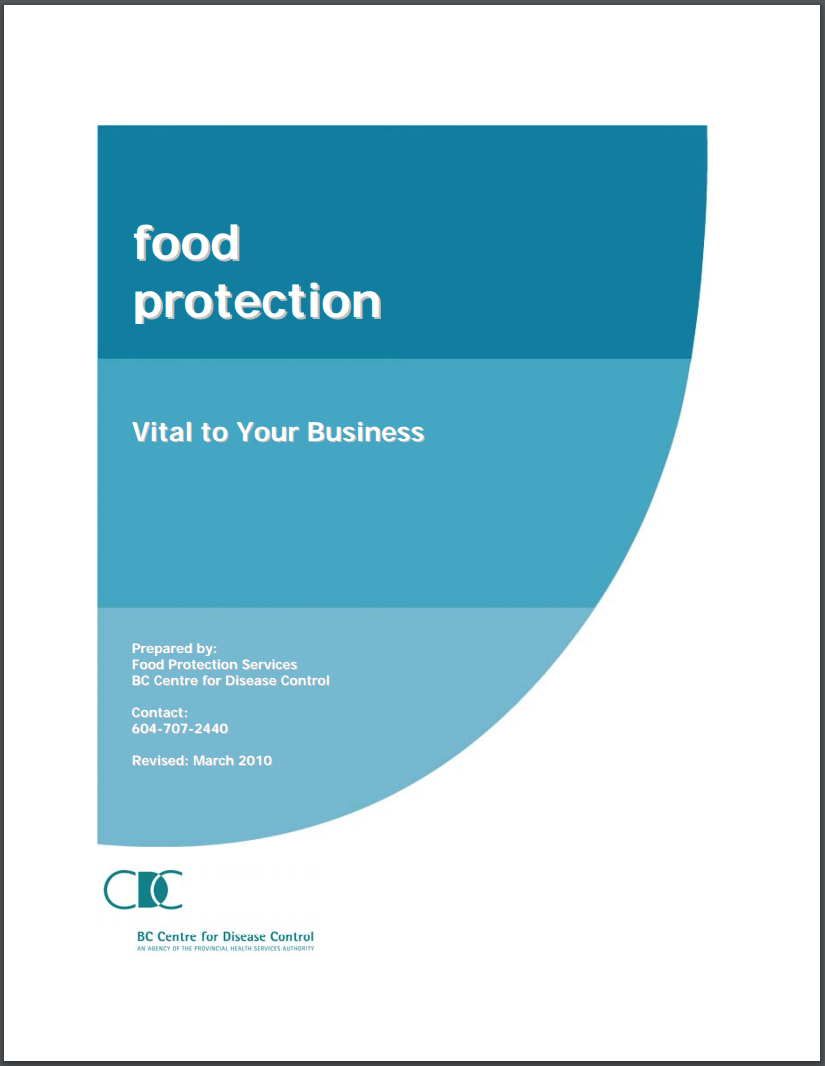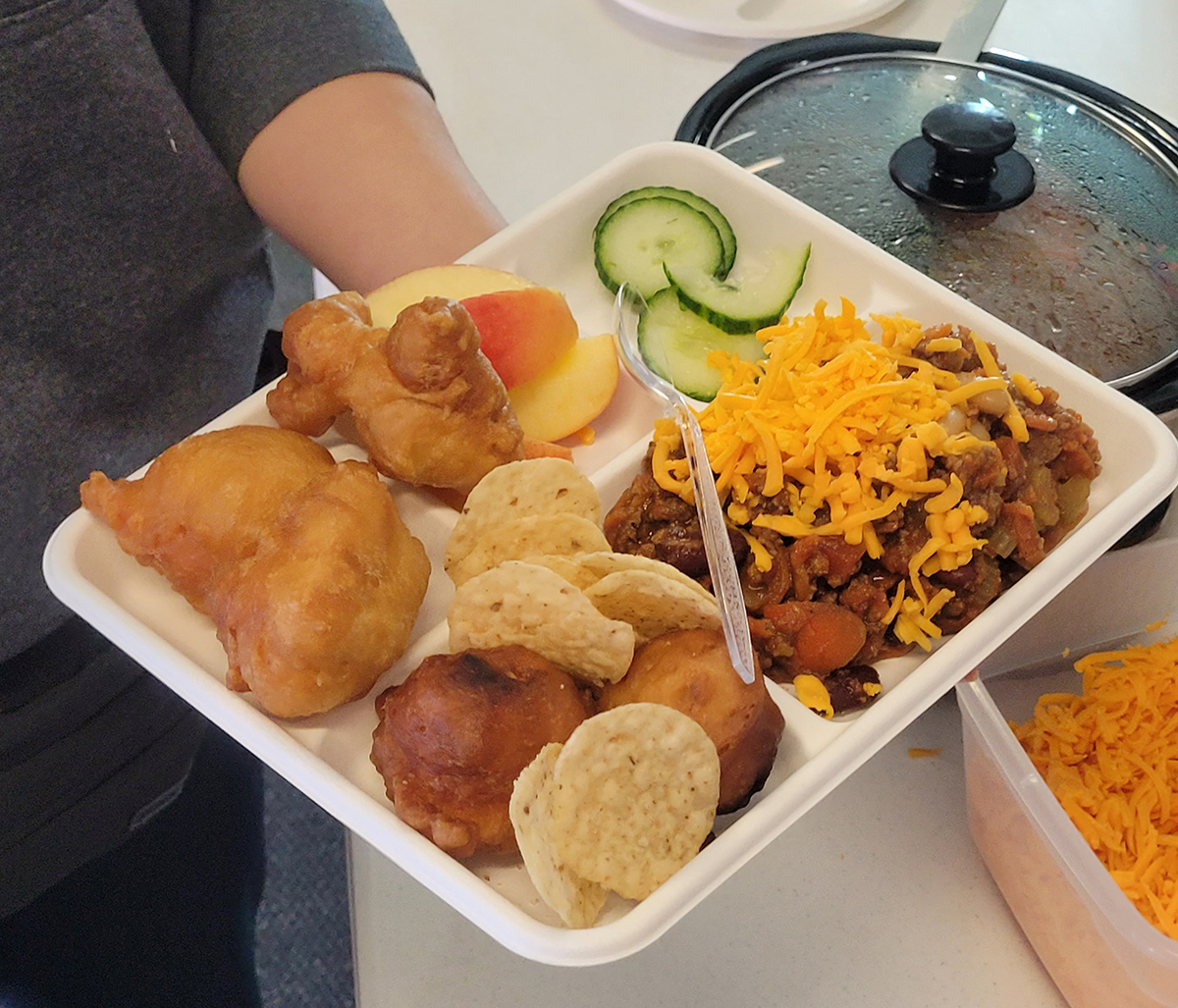Food protection is a very important part of your business. Illnesses related to food cost British Columbians millions of dollars in health care expenses, lost wages, workers’ compensation claims, and legal fees every year. You can help prevent some of these illnesses and liabilities by running a safe and sanitary food business.
Besides protecting the public, managing a sanitary operation is good business. It attracts customers and reduces costs. It decreases the amount of food that is spoiled. It helps keep insurance rates down. It reduces the chance of lawsuits and negative publicity. It can even prevent the closure of your business.
Environmental Health Officers in BC have developed this publication to help you protect your food products, your food business and the public. The first nine sections cover the main areas of operation. Each section lists many important “do’s” and “do not’s” for you and your staff; however; the booklet does not cover everything. This information complements the training you receive from courses such as the FOODSAFE course and the advice you get from your Environmental Health Officer. The last three sections provide you with information regarding FOODSAFE Training for food handlers, the FOODSAFE Excellence Certification Program for food industry operations, and ways in which the food industry can help promote safe food handling to their customers.
Please feel free to contact an Environmental Health Officer in your area whenever you have concerns or questions about any aspect of running a sanitary food business. Do not wait until a health officer comes to check your operation. The Environmental Health Officer is there to help you prevent problems. When it comes to food protection, both you and the health officer are in the same business.
The BC government is committed to protecting British Columbians from the harmful effects of industrially-produced trans fat found in food where consumers have little ability to know the trans fat content. Beginning September 30, 2009, all food located on the premises of, prepared, served or offered for sale in a food service establishment must meet the trans fat regulation requirements. Documentation for food must be kept on site to demonstrate compliance. For more information, visit www.restricttransfat.ca or call 811 and ask to speak to a HealthLink BC dietitian. READ MORE





